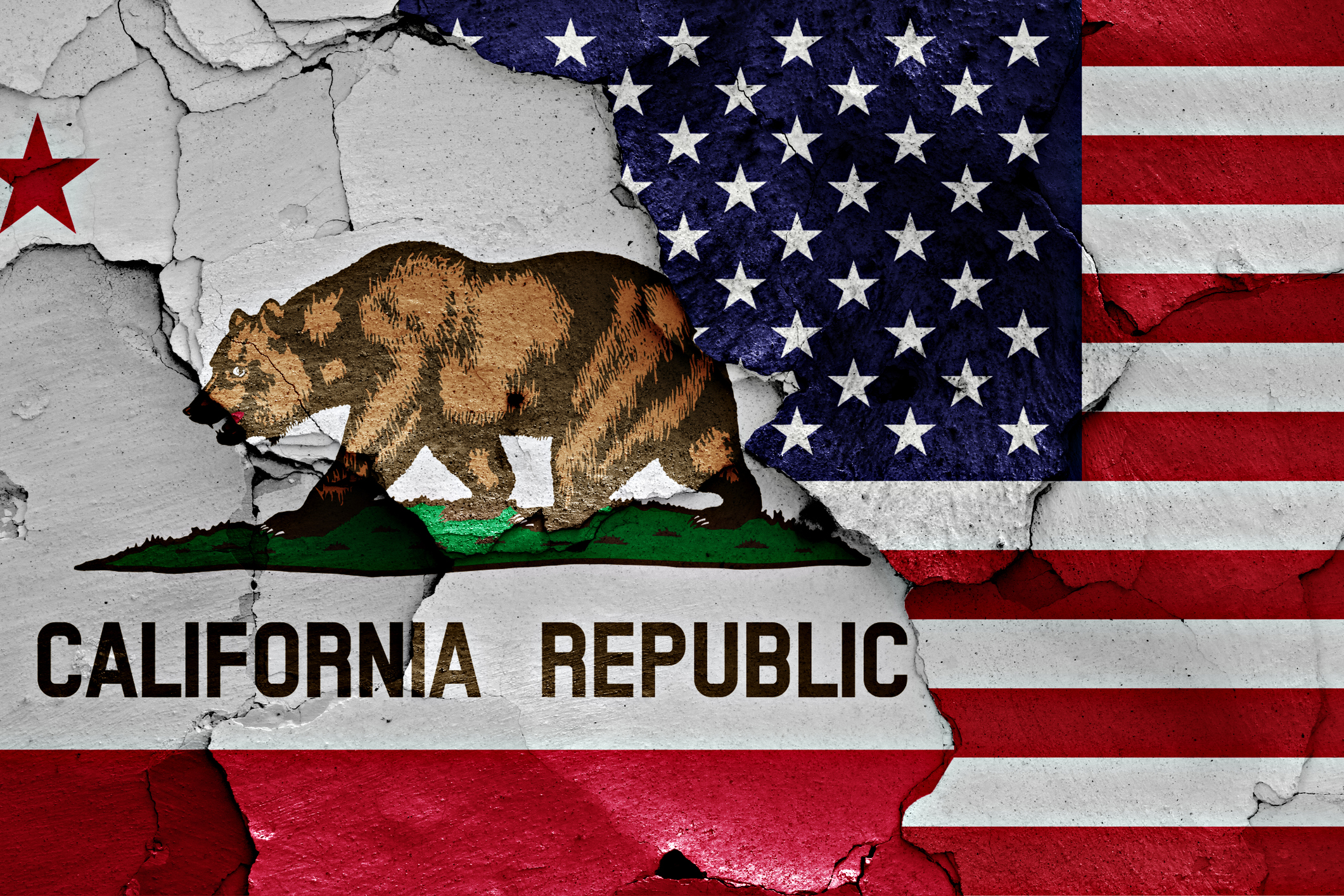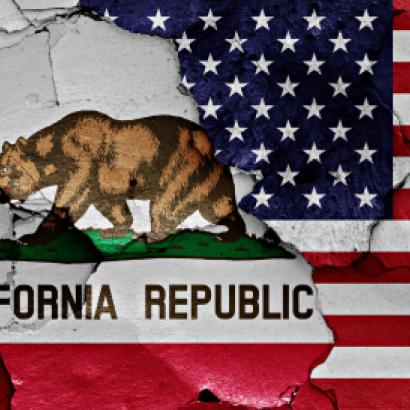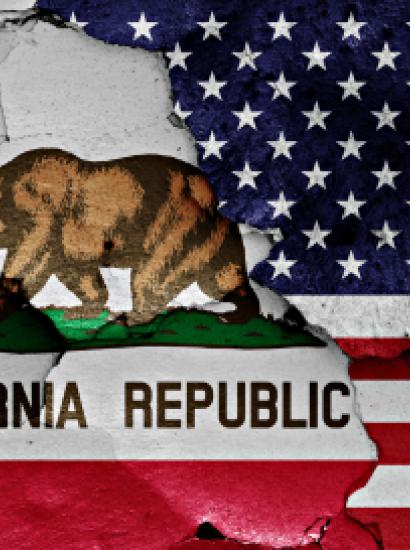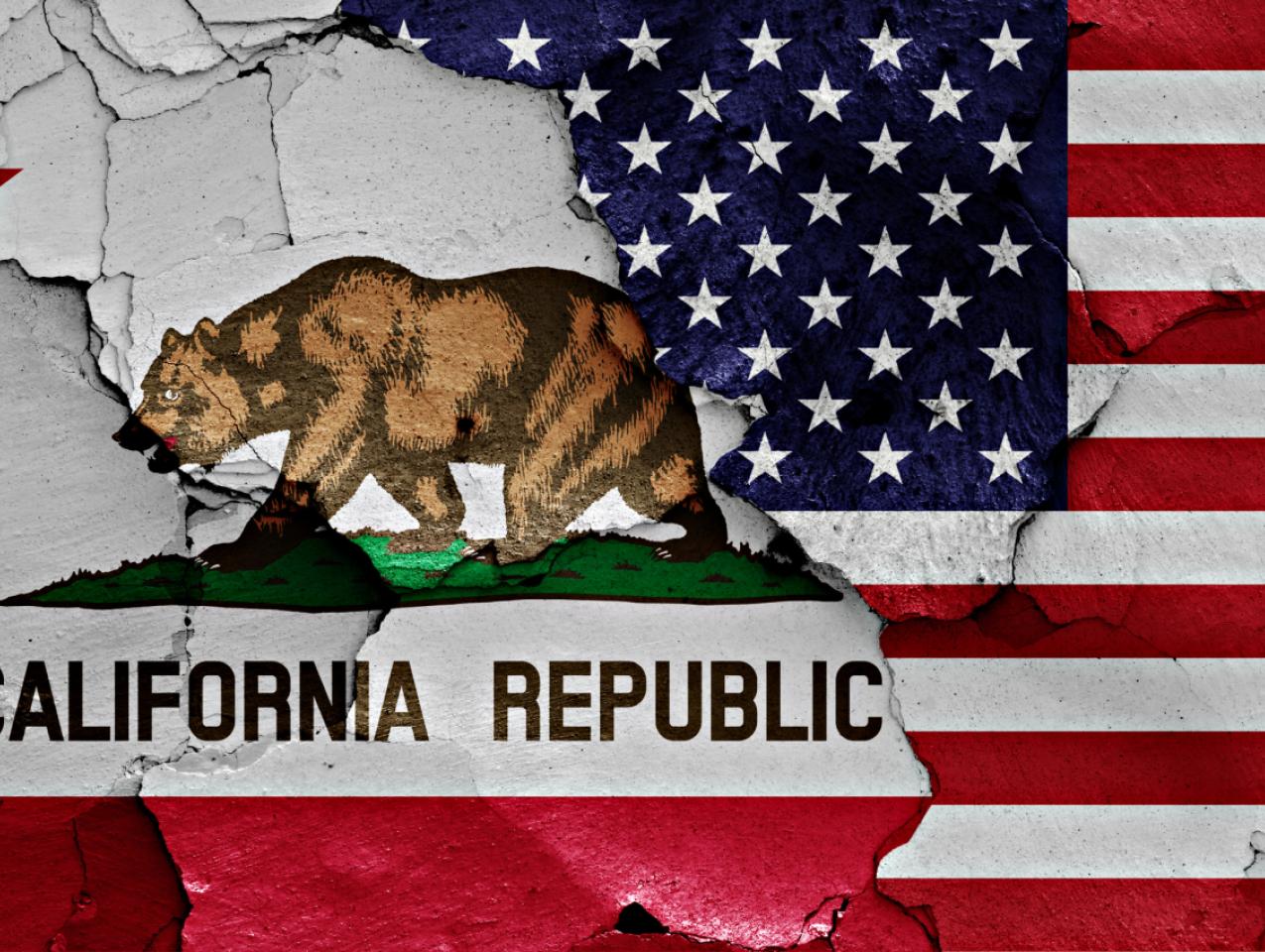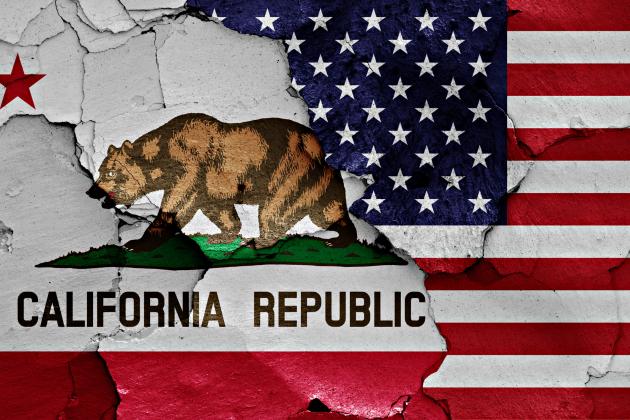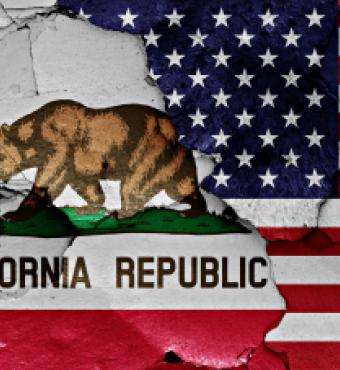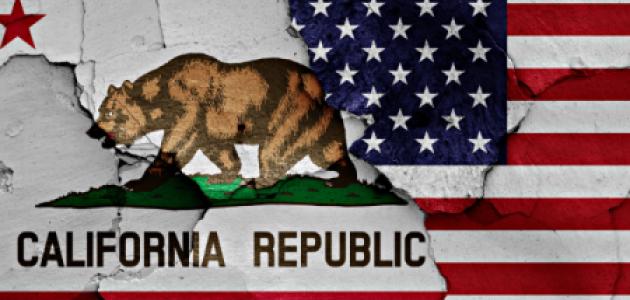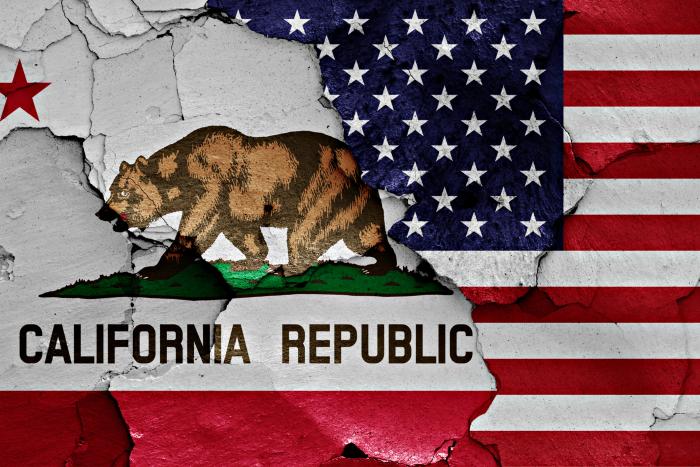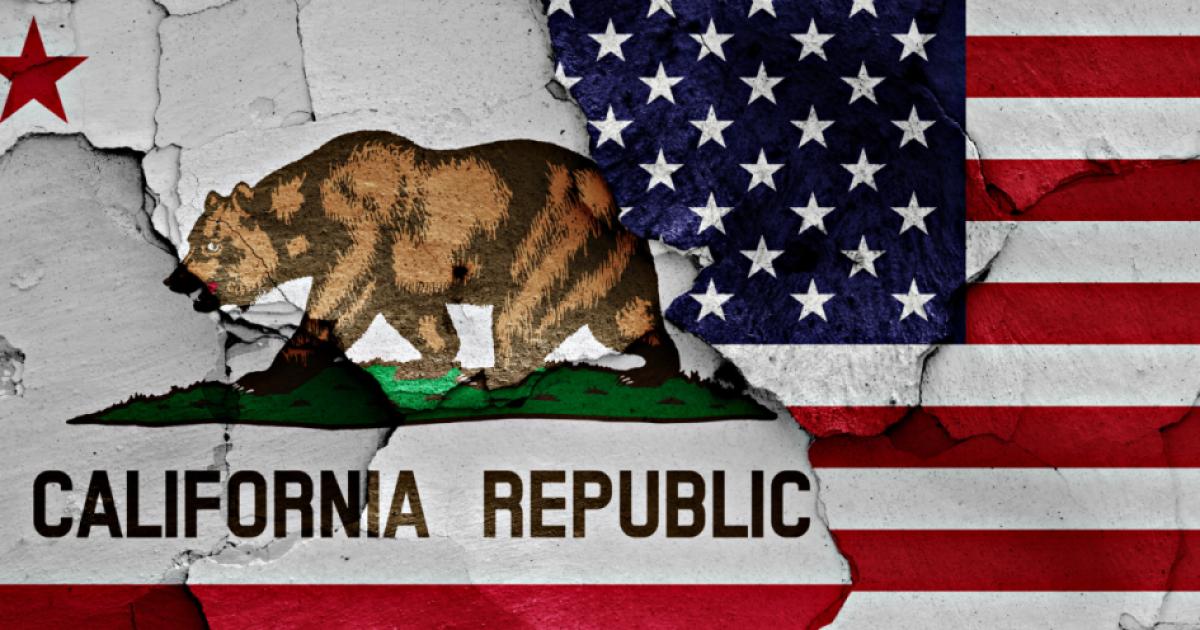- Politics, Institutions, and Public Opinion
- Campaigns & Elections
- State & Local
- California
Unless the mother of all earthquakes strikes and the largest of the West Coast states tumbles into the sea (Steely Dan said it would happen, but it hasn’t), California is not an island.
More to the point, it’s not England in the summer and fall of 1940—an actual island fortress that was standing alone against Nazi tyranny (although historians love to debate just how alone Great Britain was in its darkest and finest hours).
One way to look at California: it’s not so much a detached land as it is the uppermost reaches of a liberal peninsula (not coincidentally, that’s San Francisco’s geography). In other words, the Golden State isn’t so much going it alone, sometimes, as it is first in line.
One such example: SB 206, the so-called Fair Pay to Play Act.
Approved unanimously by both chambers of the California State Legislature (it now awaits Gov. Gavin Newsom’s signature or veto), the measure would make it illegal, come 2023, for California schools to take away an athlete’s scholarship or eligibility as punishment for accepting money.
The National Collegiate Athletic Association (NCAA), which is open to amending its rules to better reflect today’s dollar-rich world of college sports, opposes the bill on the grounds that it violates current rules regarding a player’s ability to make money by selling the rights to his or her name, image, or likeness (interesting, some past college athletes, including a Heisman Trophy winner, differ on SB 206).
But on this one, California doesn’t “stand alone.” A pair of South Carolina legislators would like to do the same for college athletes in their state (four years ago, a South Carolina measure that mirrors SB 206 was introduced but never got a hearing). And Kentucky’s Republican governor, Matt Bevin, wants to see the change (it’s worth mentioning that South Carolina–based Clemson University is college football’s reigning king, while the University of Kentucky is a perennial basketball powerhouse).
What California has done is to start the clock ticking on a conversation that most likely will have one of two outcomes for California’s NCAA-sanctioned schools and beyond: a serious change to the concept of unpaid collegiate athletes . . . or California collegiate teams cut off from NCAA competition. (Considering that a California school hasn’t won an undisputed national football title since the 2004 season, or a basketball title since 2006, maybe this isn’t as big a loss as it seems).
My first thought, reading about SB 206 the same night Democrats were debating in Houston last week, was: what do the candidates think?
Answer: Bernie Sanders is for it. (“College athletes are workers. Pay them.”) So too is Andrew Yang. (“We should create a new type of college athlete—'Performer athlete’—who is entitled to market-based compensation.”)
My second thought: when will the Democratic horde come to California to debate this host of progressive ideas cooked up in Sacramento—an all-you-can-eat buffet of government-to-the-rescue and liberal social engineering that every 2020 Democratic presidential hopeful will promise but never will come close to realizing in the nation’s capital?
A funny thing about the Democratic presidential debates: three have been held to date, in Miami, Detroit, and Houston. A fourth is scheduled for mid-October at Otterbein University in Westerville, Ohio.
But after that, there isn’t a location set for November and December’s debates. Why not California, which Democrats yet again seem to be taking for granted (as far as the 2016 election and Democratic debates were concerned, Hillary Clinton and Bernie Sanders only got as far west as Nevada).
I’ll take this idea one step further. I’ll gladly help with site location.
May I suggest the campus of Stanford University (alma mater of two of the candidates and close to all of that Bay Area money) or that of the University of Southern California (again, proximity to scads of Democratic donors, though the candidates would have to stake a position on actress Felicity Huffman’s 14-day sentence for her role in the college admissions scandal that’s struck both the USC and Stanford campuses).
If Democrats want to insist they’re England and it’s 1940, then fine, let’s find a Churchill ookalike to play moderator (I’m kidding—besides, in California, good luck finding a place to light a cigar).
As for the debate script: well, it writes itself. It’s as simple as asking the candidates where they stand on a series of California matters.
In addition to SB 206, that would include these matters:
- AB 5, which changes how gig-economy workers are treated in California, and which my Hoover colleague Lee Ohanian discussed in this space earlier this week. In essence, the field would have to choose sides—Big Labor, or ride-share and delivery services like Uber, Lyft, and DoorDash.
- Offering government-subsidized benefits—i.e., access to the state’s Medicaid program—to young adults living in the United States illegally. Newsom and legislators agreed to this as part of this summer’s state budget negotiations. Would the Democratic field answer again as it did in the first debate?
- Capital punishment. In March, Newsom placed a moratorium on California’s death penalty (only voters can repeal the law, which they almost did three years ago). Is there a Democrat on the stage who doesn’t want to abolish capital punishment?
- Fur trapping. Newsom earlier this month signed AB 273, the Wildlife Protection Act of 2019, prohibiting the trapping of native animals, including grey foxes, coyotes, beavers, badgers, and minks. Do the candidates think “fur is murder”? For that matter, how many of them, or their spouses, own fur products?
- Sodas. This year in Sacramento, most of the legislature’s anti-soda measures have fizzled worse than a day-old, half-consumed can of Coke. Do the candidates think soft drinks should be available to children? Or is guzzling Diet Cokes too Trumpian for their tastes?
- “X” Marks the Spot. California’s Department of Motor Vehicles now issues IDs to residents associating as non-binary rather than male or female—an “X” classification instead of the traditional “M” or “F.” The candidates could answer: where else should society go? For example, would they expand the California law requiring establishments with single restrooms to indicate that the restroom is gender neutral?
- Finally, a history lesson. A draft ethnic-studies curriculum currently under consideration in Sacramento likens Israel’s treatment of the Palestinians to apartheid and (perhaps not a surprise) doesn’t include the term “anti-Semitism.” What are the candidates’ views on Israel and on California’s rising anti-Semitic crime rate (up 21% over the past year)?
One final tweak I’d make to the California Democratic debate, for the candidates’ sake: hold it in prime time—that is, prime time in the Pacific time zone. That way, most voters in the middle of the country won’t have to see the tragedy of presidential candidates having to conform to California standards.







